‘Tis the season for holiday songs, and below are among the first and finest.
From Italy
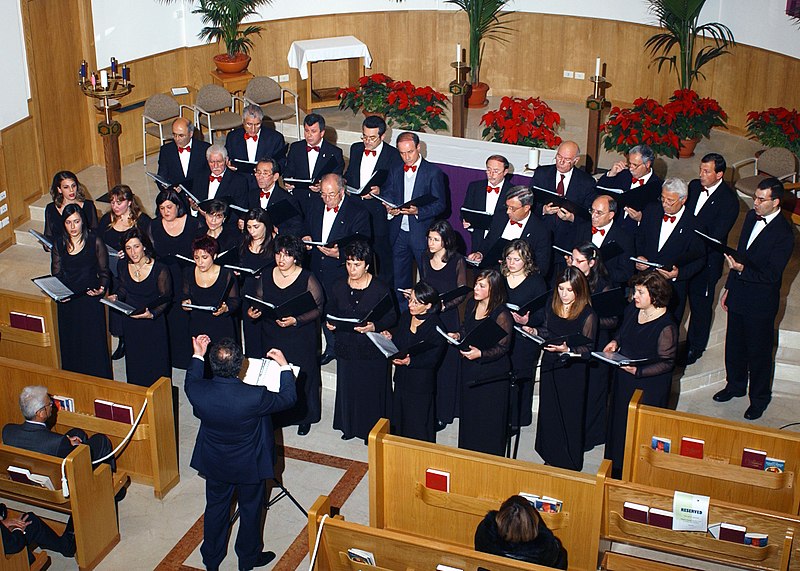
Christmas carols originated in Italy, where history tells us that the earliest Christmas hymns took place in Rome in the 4th century. Later, St. Francis of Assisi helped popularize Christmas carols in the 12th century, as well as creating the first symbol devoted exclusively to Christmas with the advent of the Nativity Scene, complete with living figures.
Tu scendi dalle stelle was written in 1732 by Saint Alphonsus Liguori, a prominent Neapolitan priest and scholastic philosopher who founded the Redemptorist Missionary Order. Composed in the musical style of a pastorale, the melody and original lyrics were first written in a Neapolitan dialect, called Quanno nascette Ninno, and later re-written in standard Italian by Pope Pius IX.
Earlier, Pope Julius I chose December 25, 336, AD as the date when Christmas (a contraction of “Mass of Christ”) was first celebrated in an effort to absorb the traditions of the Roman pagan festival of Saturnalia. Initially referred to as “The Feast of the Nativity,” the Christian custom spread to Egypt in 432, and to England by the end of the sixth century. By the eighth century, the celebration of Christmas had traveled all the way to Scandinavia.
Andrea Bocelli – Tu Scendi Dalle Stelle – Live from the Kodak Theatre, USA / 2009
Tu scendi dalle stelle in standard Italian
Tu scendi dalle stelle
O Re del Cielo
e vieni in una grotta
al freddo e al gelo
O Bambino mio Divino
Io tivedo qui a tremar
O Dio Beato
Ahi, quantoticostò
l’avermiamato!
A te, che sei del mondo
il Creatore
mancano panni e fuocom
O mio Signore!
Caro elettoPargoletto
Quantoquestapovertà
più mi innamora!
Giacchétifece amor
poveroancora!
Tu scendi dalle stelle translated Into English as Starry Skies Thou Comest
From starry skies descending
Thou comest, glorious King
A manger low Thy bed
In winter’s icy sting
O my dearest Child most holy
Shudd’ring, trembling in the cold!
Great God, Thou lovest me!
What suff’ring Thou didst bear
That I near Thee might be!
Thou art the world’s Creator
God’s own and true Word
Yet here no robe, no fire
For Thee, Divine Lord.
Dearest, fairest, sweetest Infant
Dire this state of poverty
The more I care for Thee
Since Thou, O Love Divine
Will’st now so poor to be.
From France
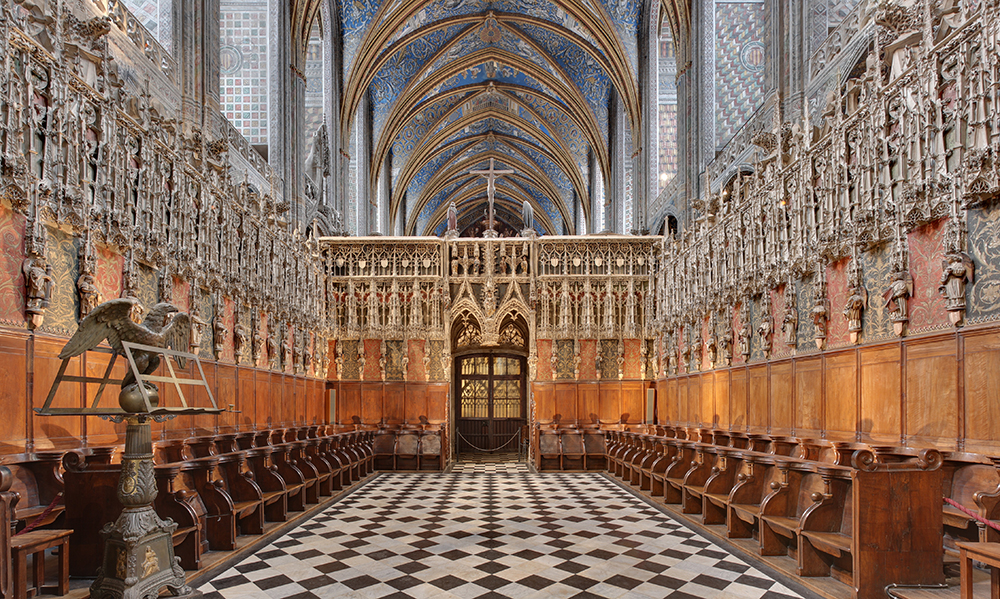
Minuit chrétiens or Cantique de Noël; English: O Holy Night
Placide Cappeau was asked in 1843 to write a Christmas poem to celebrate the recent renovation of the church organ in his home town. He obliged with a poem about the birth of Jesus as humanity’s salvation, which he initially called Cantique de Noël (“Christmas Hymn”), but felt the poem required accompanying music. In 1847, he turned to his friend, Adolphe Charles Adam, a prolific French composer of operas and ballets, to compose the music.
For Adolphe Charles Adam, a devote Jewish man, the words of Cantique de Noël were about a day he didn’t celebrate, but still quickly went to work, adding an original score to Cappeau’s poem. The finished product was performed three weeks later at a Midnight Mass on Christmas Eve.
At first, Cantique de Noël was accepted by the church in France, and found its way into various Catholic Christmas services. But, when Placide Cappeau became part of the socialist movement, his personal life was investigated by church leaders, who also discovered that Adolphe Adams was Jewish. The song, which had grown to be one of the most beloved Christmas carols in France, was uniformly denounced by the church as unfit for church services due to its “total absence of the spirit of religion.” Yet even as the church tried to bury the song, the French people continued to sing it — as they do today — and almost a decade after the song’s completion, the lyrics were translated by minister John Sullivan Dwight into English.
Minuit chrétiens or Cantique de Noël
Minuit, chrétiens,
C’estl’heuresolennelle
Oul’Homme Dieu descenditjusqu’à nous
Pour effacer la tacheoriginelle
Et de Son Père arrêter le courroux.
Le monde entiertressailled’espérance
Encettenuit qui luidonne un Sauveur.
Peuple a genoux, attends ta délivrance!
Noel! Noel! Voici le Rédempteur!
Noel! Noel! Voici le Rédempteur!
Le Rédempteur
A brise touteentrave:
La terreest libre et le cielestouvert.
Il voitun Frèreoun’étaitqu’unesclave,
L’amour unit ceuxqu’enchainait le fer.
Qui Lui diranotre reconnaissance?
C’est pour nous tousqu’Ilnait,
Qu’Ilsouffre et meurt.
Peupledebout, chante ta délivrance!
Noel! Noel! Chantons le Rédempteur!
Noel! Noel! Chantons le Rédempteur!
Cantique de Noël translated into English as O Holy Night
O holy night, the stars are brightly shining,
It is the night of the dear Saviour’s birth;
Long lay the world in sin and error pining,
‘Till he appeared and the soul felt its worth.
A thrill of hope the weary world rejoices,
For yonder breaks a new and glorious morn;
Chorus
Fall on your knees, Oh hear the angel voices!
O night divine! O night when Christ was born.
O night, O holy night, O night divine.
Led by the light of Faith serenely beaming;
With glowing hearts by his cradle we stand:
So, led by light of a star sweetly gleaming,
Here come the wise men from Orient land,
The King of Kings lay thus in lowly manger,
In all our trials born to be our friend;
Chorus
He knows our need, To our weakness no stranger!
Behold your King! Before Him lowly bend!
Behold your King! your King! before him bend!
Truly He taught us to love one another;
His law is Love and His gospel is Peace;
Chains shall he break, for the slave is our brother,
And in his name all oppression shall cease,
Sweet hymns of joy in grateful Chorus raise we;
Let all within us praise his Holy name!
Chorus
Christ is the Lord, then ever! ever praise we!
His pow’r and glory, evermore proclaim!
His pow’r and glory, evermore proclaim!
From Wales
OerYw’rGwr (Nos Galan); English: Deck the Hall
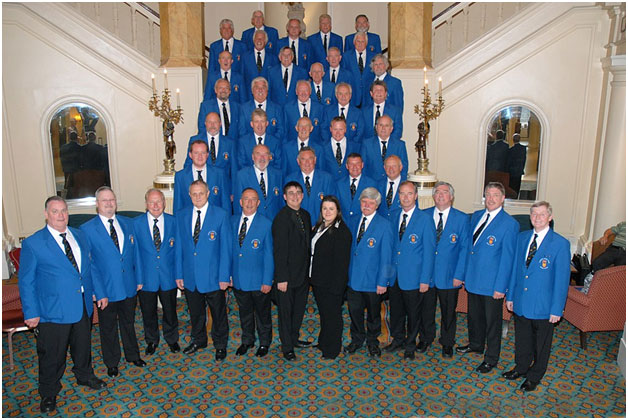
OerYw’rGwr (Nos Galan); translated into English as Soon The Hoar Old Year Will Leave Us for New Year’s Eve, is now a traditional Christmas carol, based on a Welsh melody, dating back to the sixteenth century. The repeated “fa la la” also goes back to the earlier Welsh and may originate from medieval ballads. The old Welsh air, was first found in a musical manuscript by Welsh harpist John Parry dating back to the 1700s. The tune soon spread widely, with Mozart allegedly using it in his 18th violin sonata (1778) and later arranged by Haydn with the original Welsh title, Nos Galan (1803).
The English lyrics were written by the Scottish musician Thomas Oliphant in 1862. The phrase “‘Tis the season” has become synonymous with the Christmas and Happy Holidays’ (a contraction of “Happy Holy Days”) season, with “’tis” an archaic contraction of “it is.”
Nos Galan (OerYw’rGwr) in Welsh
Oeryw’rgwrsy’nmethucaru,
Fal la lalala, la lalala.
Hen fynyddoeddanwyl Cymru,
Fal la lalala, la lalala.
Iddoefa’u car gynhesaf,
Fal la lalala, la lalala.
Gwyliaullawenflwyddnesaf,
Fal la lalala, la lalala.
I’rhelbulusoeryw’rbiliau
Fal la lalala, la lalala.
Syddyndyfodyn y Gwyliau,
Fal la lalala, la lalala.
Gwrandobregethmewnunpennill,
Fal la lalala, la lalala.
Bythnawariafwyna’thennill
Fal la lalala, la lalala.
Oeryw’reiraarEryi,
Fal la lalala, la lalala.
Er fodgwrthbangwlanenarni,
Fal la lalala, la lalala.
Oeryw’rbobolnaofalan’,
Fal la lalala, la lalala.
Gwrdda’ugilyddAr Nos Galan,
Fal la lalala, la lalala.
The old Welsh song Nos Galan (OerYw’rGwr) performed by the IONA.
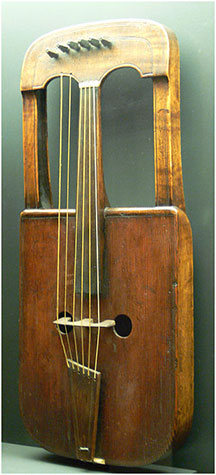
Nos Galan (OerYw’rGwr) translated into English
Cold is the man who can’t love,
Fal la lalala, la lala la.
The old mountains of dear Wales,
Fal la lalala, la lalala.
To him and his warmest friend,
Fal la lalala, la lalala.
A cheerful holiday next year,
Fal la lalala, la lalala.
Cold is the snow on Mount Snowdon,
Fal la lalala, la lalala.
Even though it has a flannel banket on it,
Fal la lalala, la lalala.
Cold are the people who don’t care,
Fal la lalala, la lalala.
To meet together on New Year’s Eve,
Fa la lalala, la lalala.
From Austria
Stille Nacht, heilige Nacht; English: Silent Night
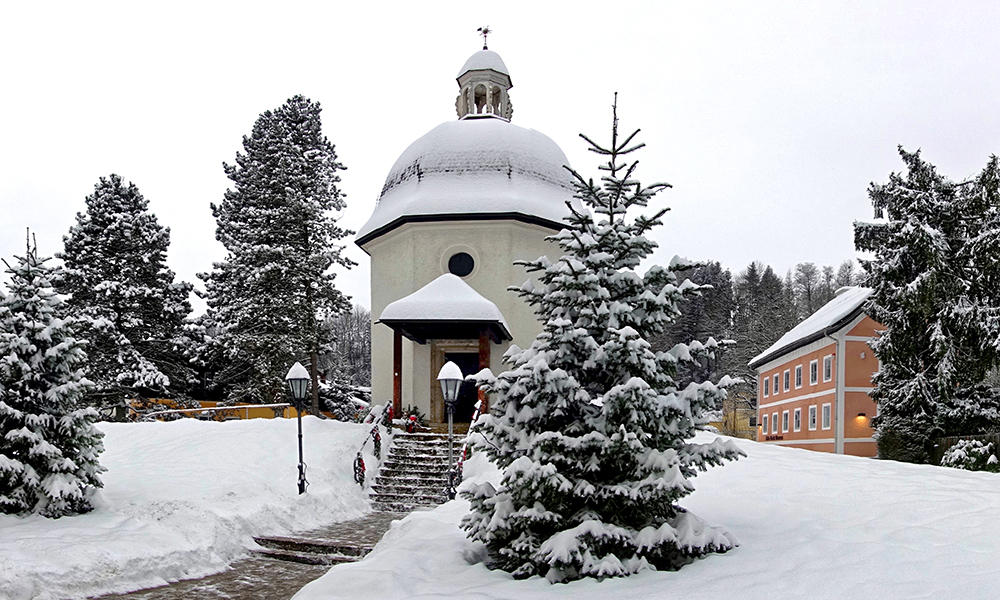
The lyrics to Stille Nacht, heilige Nacht were written by Josef Mohr, a young and impoverished Austrian priest in Oberndorf bei Salzburg.
On an 1818 Christmas Eve, Mohr frantically walked two miles in the snow to reach his friend, Franz Xaver Gruber, a school teacher who also served as the church’s choir master and organist. Mohr brought with him a poem he had written some two years earlier. He desperately needed a carol for the Christmas Eve Midnight Mass that was only a few hours away, and hoped his friend could set his poem to music. Gruber quickly composed the melody for Stille Nacht, with an arrangement played on a guitar because the church organ was in disrepair. That evening at Midnight Mass, Gruber led the congregation at St. Nicholas in the first rendition of Stille Nacht. Gruber came from equally humble origins as Mohr, and the close friendship of the two men is what led to the creation of Stille Nacht.
Today Stille Nacht is regarded as one of the most famous Christmas carols in history. It has been translated into multiple languages, with the Bing Crosby version the third-bestselling single in the world. A rebuilt Silent Night Chapel in Oberndorf is now a cultural landmark.The song was declared to be an intangible cultural heritage by UNESCO in 2011.
The original first verse of Stille Nacht
Stille Nacht, heilige Nacht,
Allesschläft; einsamwacht
Nur das trautehochheiligePaar
Holder KnabeimlockigenHaar
Schlaf in himmlischerRuh!
Schlaf in himmlischerRuh!
Stille Nacht translated in English as Silent Night
Silent night! Holy night!
Everything is asleep.
Only the faithful holy couple are awake, alone.
Lovely boy with curly hair.
Sleep in heavenly peace
Sleep in heavenly peace.
From Lithuania
Oy Chanukah; English: Oh, Hanukkah
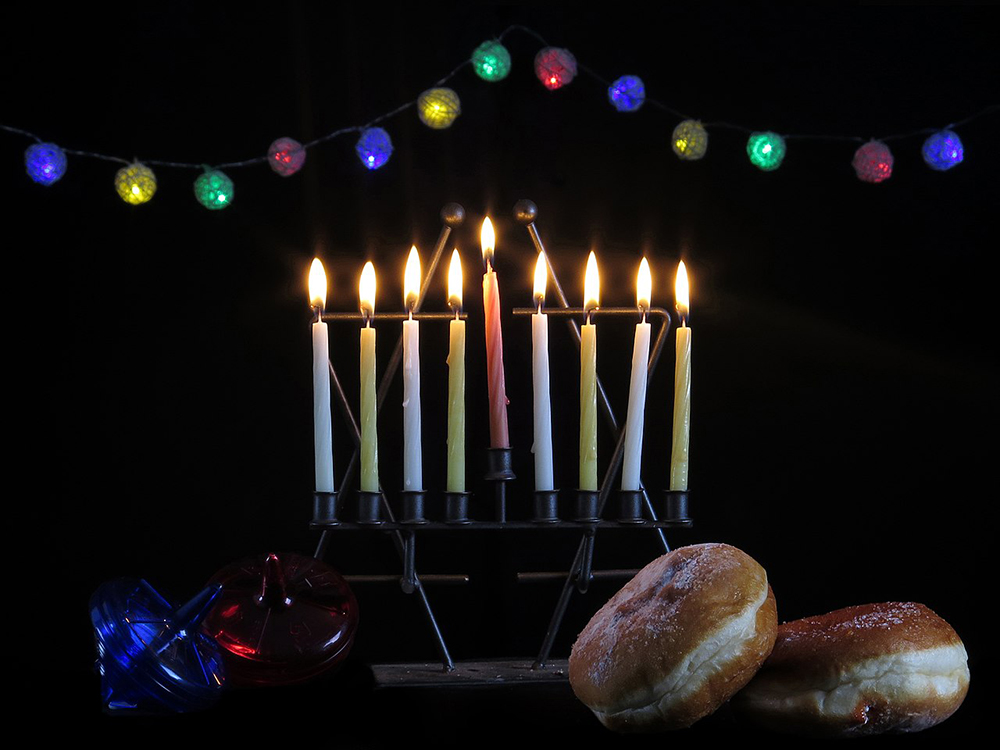
The original Yiddish version of Oy Chanukah was written by Mordkhe Rivesman (1868-1924) in Lithuania. The song was also called Latke Song and Khanike Oy Khanike.
The song was first published in Susman Kiselgof’s 1912 Lider-Zamlbukh Song Anthology. The English words, while not an exact translation, are roughly based on the Yiddish language. There is also a Hebrew version which has the same melody; its words penned by Avraham Avronin. The lyrics correspond to the original (more so than the English version), with slight variations for rhythm and meter. Israel’s Oy Chanukah remains a popular song, but since the country has a rich inventory of Chanukah songs, it is not as exclusively popular as the English version in English speaking countries, or the Yiddish version of the past.
Oy Chanukah
Oy Chanike, Oy Chanike,
A yontef a sheyner
A lustiker, a freylecher
Nitonochazoyner
Alle nacht in dreydlechshpiln mir
Zudigheyse latkes, esn on a shir.
Geshvinder, tsindt, kinder, di Chanikelichtelech on.
Zolyederbazunder, bazingen dem vunder
Un tantzenfreylekh in kon.
Translation in English
Oh Hanukkah, Oh Hanukkah,
A holiday, a lovely one,
A cheerful and happy one, there’s none other like it.
Every night with dreidels do we play,
Boiling hot latkes, do we eat.
Quickly children light, the Hanukkah candles.
Let’s all sing, and let’s all jump,
And let’s all dance together! Let everyone sing of the wonder,
And let’s all dance together!
For more information about Hanukkah, visit Chanukah Potato Latke History and Recipe
Secular Holiday Songs
Happy Xmas (War Is Over) is a Christmas song written and released in 1971 as a single by John & Yoko/Plastic Ono Band with the Harlem Community Choir.
The Chanukah Song was composed by comedian Adam Sandler along with Saturday Night Live writers, Lewis Morton and Ian Maxtone-Graham. It was first performed by Sandler on Saturday Night Live’s Weekend Update on December 3, 1994.
Brenda Lee recorded the holiday classic Rockin’ Around the Christmas Tree, penned by Johnny Marks in 1958, when she was just 13-years-old.
I Saw Mommy Kissing Santa Claus, written by British songwriter Tommie Connor in 1952, was one of the tracks on Jackson 5 Christmas Album, which was released on October 15, 1970.
Blue Christmas, a song about unrequited love during the holidays, was written by Billy Hayes and Jay W. Johnson, and most famously performed by Elvis Presley. When Elvis sang “Blue Christmas” during his 1968 TV Special, co-singer Martina McBride was not even two years old. Nevertheless, 40 years later, with the help of some savvy technology, McBride was able to step back in time and perform with the rock n’ roll legend.
Father Christmas – what Santa Claus is known as in the U.K. – was written by The Kinks’ leader and founding member, Ray Davies. It was released as a single by The Kinks on Nov. 25, 1977, and is considered rather unusual as a Christmas song.



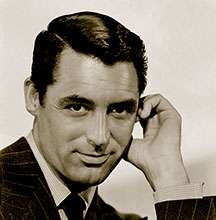

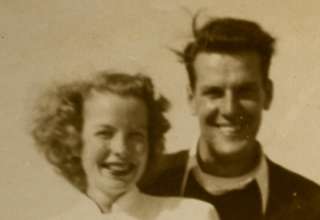
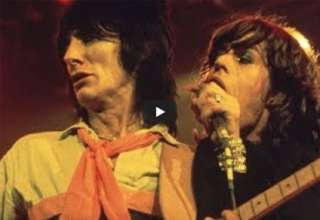


















Raoul
December 18, 2021 at 3:54 pm
Thanks for this article, Ed.
I like the historical background of these carols.
I never saw the Adam Sandler clip for SNL. He looks like a rock star. Glad he reminded us of the Jewish tradition in America. Quite interesting that so many Hollywood elites are/were Jews.
I always thought “Rockin’ Around” was sung by Kenny Rogers for some strange reason.
And Elvis … he was super handsome. No wonder the women went crazy over him. Such a contrast to his later years.
I would have included Bing Crosby, Perry Como, Johnny Mathis, The Chipmunks. The Carpenters, and Amy Grant in your selection.
Good research. Good article.
Ed Boitano
December 19, 2021 at 10:37 am
Thank you for the kind words!